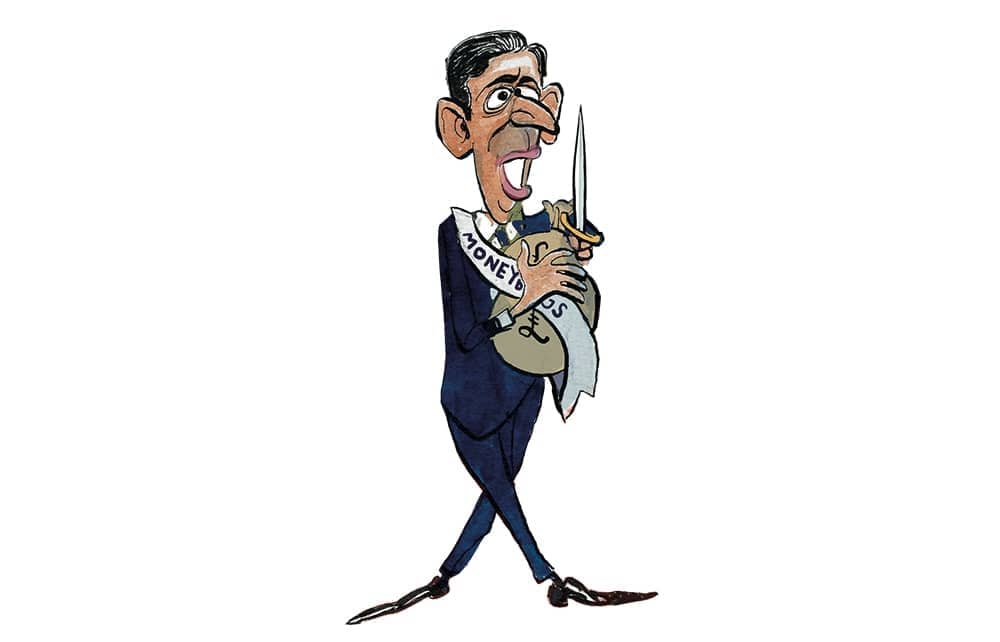Until this morning this had been Rishi Sunak’s week. While Liz Truss found herself trying to talk her way out of her rapidly-abandoned policy for regional pay boards – which she accused others of misrepresenting but couldn’t seem to explain herself – Rishi Sunak emerged the surprise winner from a show of hands among Sky’s hand-picked audience last night. But no sooner had Sunak started his comeback than he was knocked down with an embarrassment of his own: the New Statesman obtained footage of him boasting to an audience in Tunbridge Wells last Friday that:
I managed to start changing the funding formulas to make sure that areas like this receive the funding they deserve. We inherited a bunch of formulas from the Labour party that shoved all the funding into depressed urban areas. That needed to be done. I started the work of undoing it.
Sunak has himself to blame for his loose words. It is never going to be a good look when a wealthy former chancellor poses as a reverse Robin Hood taking from the poor to give to the relatively affluent. But much though the Conservatives’ enemies might love to think that Rishi dreamed up some secret formula that reallocates money from Toxteth to Tunbridge Wells, the reality is somewhat more prosaic.
There is nothing secret about Rishi Sunak’s revision of the rules for assessing public investment, and nor is there anything in them which favours rich areas over poor ones. On the contrary, the new rules revolve around two things of which you might think Labour and others on the left would approve: prioritising public benefits which cannot easily be monetised and promoting the government’s target for net zero by 2050.
The rules surrounding the allocation of public funds for investment are contained within the ‘Green Book’. A revision of these rules was announced in Sunak’s first budget in March 2020, and the review was published in November 2020.
Contrary to what Sunak appeared to be telling his audience, the document clearly states that the review was set up ‘in response to concerns that the government’s appraisal guidance may mitigate against investment in poorer parts of the UK and undermine the government’s aim to ‘level up’ these areas’.
The document goes on to complain that previous funding formulas have been too reliant on something called the Benefit Cost Ratio (BCR), which favours projects offering things on which a monetary value can easily be put. ‘This in turn,’ it goes on to say, ‘creates an incentive for proposers to artificially boost the BCR with such benefits that are unlikely to be realised, as well as suggesting a level of certainty around the value of those benefits that is not merited by the evidence’. Reading between the lines, this could be a defence of the decision – then newly-made – to press ahead with HS2. Whatever you think of that project, it certainly wasn’t devised to benefit Tunbridge Wells.
Much of the document revolves around the government’s commitment to net zero. The Treasury argues that previous funding formulas risked a ‘transfer of wealth from the future to the present’ because they didn’t put enough value on the harm wrought by carbon emissions. Again, whatever you think of the net zero commitment, it is hard to see how that is supposed to favour wealthy parts of the country.
The only people who really have reason for complaint are Conservative members in Tunbridge Wells who were fed nonsense by Sunak that he was channelling money to their constituency when his changes to the way public investment is assessed do no such thing. Sunak’s reputation as an honest broker may have taken a knock from the video – but no, the Conservatives are not operating a secret mission to take from the poor to give to the rich.







Comments